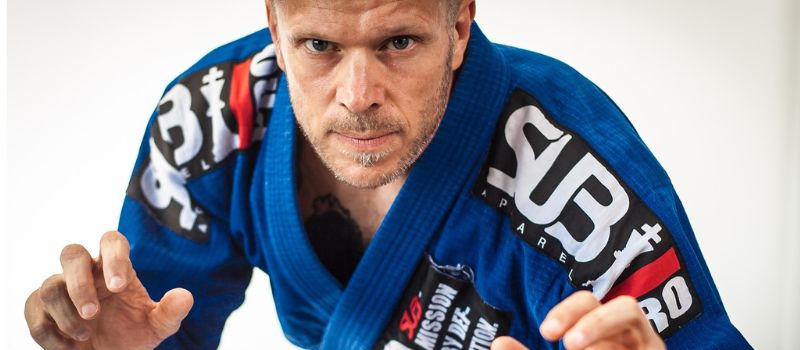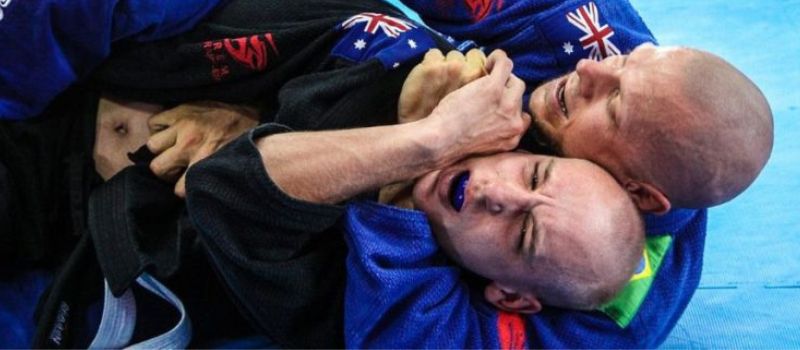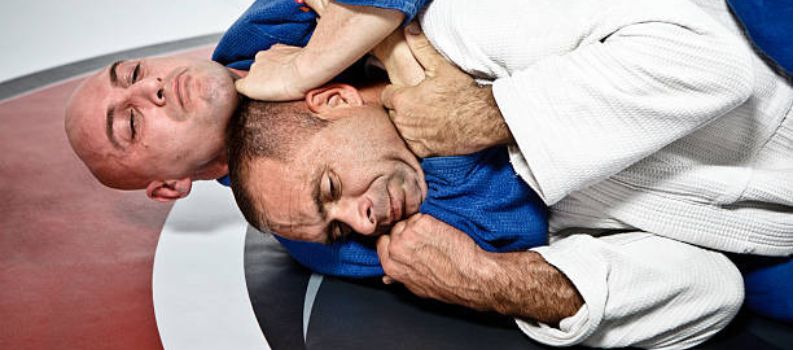Overview
The debate of jiu jitsu vs taekwondo, two highly respected martial arts, centers on their abilities to foster discipline, strength, and self-defense skills. Both disciplines have achieved worldwide acclaim for their distinct methods. In our thorough comparison, we will explore the difference between jiu jitsu and taekwondo by examining their histories, techniques, and philosophies to enhance your comprehension of these practices.
Taekwondo: History, Techniques, and Philosophy
Originating in Korea, Taekwondo is a martial art that excels in high, fast kicks and dynamic movements. Since its development in the mid-20th century, it has ascended to Olympic sport status, affirming its reputation as a celebrated Korean martial art. Taekwondo’s emphasis on powerful kicking techniques makes it an exemplary martial art for self-defense. Its techniques are marked by precision, speed, and agility, with kicks being a core element. Practitioners also absorb its philosophical teachings, which promote values such as courtesy and perseverance.
Jiu Jitsu: Origins, Principles, and Techniques
Jiu Jitsu, in contrast, has its origins in Japan and was initially crafted as a self-defense mechanism for samurai warriors. As a jiu jitsu martial art, it is founded on the principles of leveraging techniques and grappling to overpower larger adversaries, often through the use of submission holds. Practitioners, clad in the traditional gi, master control over an opponent through joint locks, chokes, and achieving positional superiority, with an emphasis on body awareness, timing, and strategic thinking.

Key Differences
While both Taekwondo and Jiu Jitsu are martial arts, they exhibit significant differences in their techniques and areas of focus. Taekwondo vs brazilian jiu jitsu discussions often highlight how Taekwondo prioritizes striking techniques, using kicks and punches to engage opponents from afar. Conversely, Jiu Jitsu zeroes in on close-quarters combat, with a focus on grappling techniques and ground fighting. Taekwondo practitioners are trained to deliver powerful and swift kicks, whereas Jiu Jitsu practitioners employ leverage and precise technique to subdue adversaries.
Similarities
Despite their differences, Taekwondo and Jiu Jitsu share commonalities. Both are self defense martial arts that demand discipline, dedication, and mental focus. They both foster physical fitness, flexibility, and coordination, and offer valuable self-defense skills for real-life scenarios. Moreover, both martial arts emphasize respect, humility, and personal growth.
Which Martial Art is Right for You?
Choosing the right martial art for you involves considering your goals, interests, and physical capabilities. If explosive kicks and high-energy movements appeal to you, Taekwondo might be the martial art that aligns with your preferences, contributing to the brazilian jiu jitsu vs taekwondo discussion. Alternatively, if you are drawn to the technical intricacies of ground fighting and leveraging techniques to overpower opponents, Jiu Jitsu could be more fitting, reflecting the jiu jitsu vs taekwondo comparison. It’s crucial to experience both martial arts to discover which one aligns with your personal interests.
Benefits of Practicing Taekwondo
Practicing Taekwondo offers a plethora of benefits. Physically, it enhances cardiovascular endurance, strength, flexibility, and coordination. Mentally, it fosters discipline, focus, and self-confidence. Engaging in forms, sparring, and board breaking, students not only develop mental resilience but also learn the scoring system and how to surmount challenges.
Benefits of Practicing Jiu Jitsu
Brazilian Jiu-Jitsu not only enhances physical fitness, strength, and flexibility, but also sharpens mental acuity, focusing on problem-solving skills and strategic thinking in submission grappling. Practitioners gain increased body awareness and learn to adapt to various scenarios while donning the traditional gi, which is a key element of gi jiu-jitsu practice. They develop self-confidence and a sense of humility, handling both victories and defeats with grace.

Taekwondo vs Jiu Jitsu: A Comparison of Self-Defense Techniques
In the realm of self-defense techniques, Taekwondo and Brazilian Jiu-Jitsu present distinct approaches. Taekwondo’s striking techniques, including powerful kicks and punches, enable practitioners to maintain a safe distance from attackers. Conversely, Jiu Jitsu’s emphasis on grappling and ground fighting equips individuals with the skills to control and submit adversaries in close-quarters combat, blending striking and grappling for effective self-defense strategies, tailored to personal preference and the situation at hand.
Taekwondo vs Jiu Jitsu: A Comparison of Ground Fighting Techniques
Brazilian Jiu-Jitsu (BJJ), known for its focus on ground fighting, is a variation of Jiu Jitsu that contrasts with Taekwondo’s lack of emphasis on such techniques, highlighting the brazilian jiu jitsu vs karate dynamic. BJJ techniques, which include sweeps, submissions, and achieving positional dominance, are central to its practice, making it a formidable skill set for self-defense and bjj vs taekwondo competitive grappling situations.
Training and Competitions
Both Taekwondo and Jiu Jitsu feature structured training programs and avenues for competition. Taekwondo training encompasses forms (poomsae), pad work for kicks and punches, and sparring sessions that may lead to point sparring or full-contact matches with a focus on scoring in competitions. Jiu Jitsu’s training is technique-oriented, with drilling and live sparring, and its competitions often involve attempting to submit opponents through joint locks or chokes, highlighting the importance of submissions.

Famous Practitioners of Taekwondo and Jiu Jitsu
Notable figures from Taekwondo and Jiu Jitsu have achieved global recognition. In Taekwondo, Grandmaster Choi Hong Hi, Steven Lopez, and Jade Jones have attained Olympic success. The Gracie family, especially Helio Gracie of Gracie Humaita, has been instrumental in popularizing Jiu Jitsu, with Royce Gracie and Marcelo Garcia demonstrating the art’s effectiveness in mixed martial arts through their exceptional grappling skills.
Conclusion
Choosing between Taekwondo and Jiu Jitsu should align with your personal goals, interests, and physical attributes. Taekwondo emphasizes agility and speed with its explosive kicks and strikes, while Jiu Jitsu’s ground fighting system prioritizes leverage and technique over the jiu jitsu vs karate approach. Exploring both martial arts can provide insight into their distinct techniques and philosophies, and regardless of your choice, both offer substantial physical and mental benefits and a chance to be part of a supportive martial arts community. This exploration can deepen your understanding of the dynamics between brazilian jiu jitsu vs karate.
FAQ's
Q: What is the difference between Jiu Jitsu and Tae Kwon Do?
Jiu Jitsu and Taekwondo differ significantly in their focus and techniques. Jiu Jitsu prioritizes grappling and ground fighting, whereas Taekwondo is characterized by its high, fast kicks and striking techniques, highlighting the difference between jujitsu and karate and fueling the karate vs jiu jitsu debate.
Q: Is bjj or karate better?
A: When comparing brazilian jiu jitsu vs karate, it’s really a matter of personal preference. The debate of bjj vs karate is a common one, with Taekwondo, which is often contrasted with both, emphasizing kicks and agility. Conversely, karate is renowned for its striking techniques that utilize both hands and feet. Understanding the difference between karate and jiu jitsu can help individuals choose the martial art that best suits their interests.
Q: Is Taekwondo good for boys?
A: Indeed, Taekwondo is suitable for boys, as it fosters physical fitness, instills discipline, and boosts self-confidence, making it an excellent martial art for children to develop these attributes.
Q: Is Taekwondo legit?
A: Yes, Taekwondo is recognized as a legitimate martial art, celebrated for its rich history and international acclaim. Moreover, it holds the prestigious status of an Olympic sport.
Q: Am I too old to start Taekwondo?
A: No, you’re never too old to start Taekwondo. Taekwondo schools welcome adults with classes tailored to them, and individuals of any age can reap the benefits of its physical and mental aspects.
Feel free to comment down there,what you think about this blog


